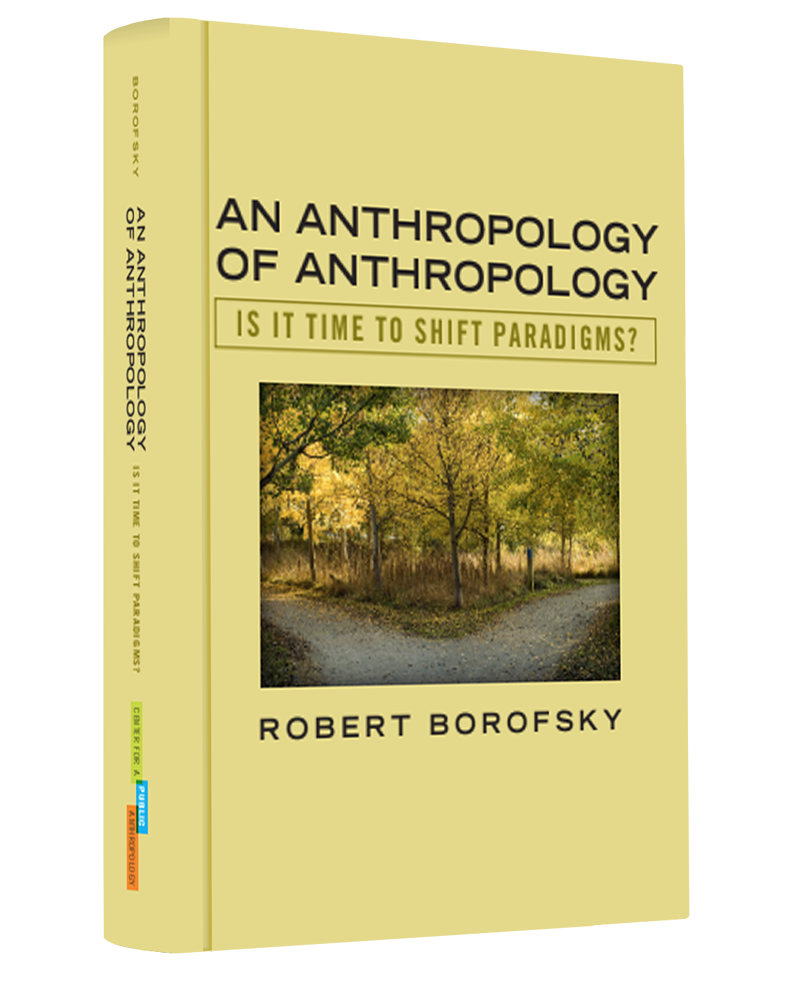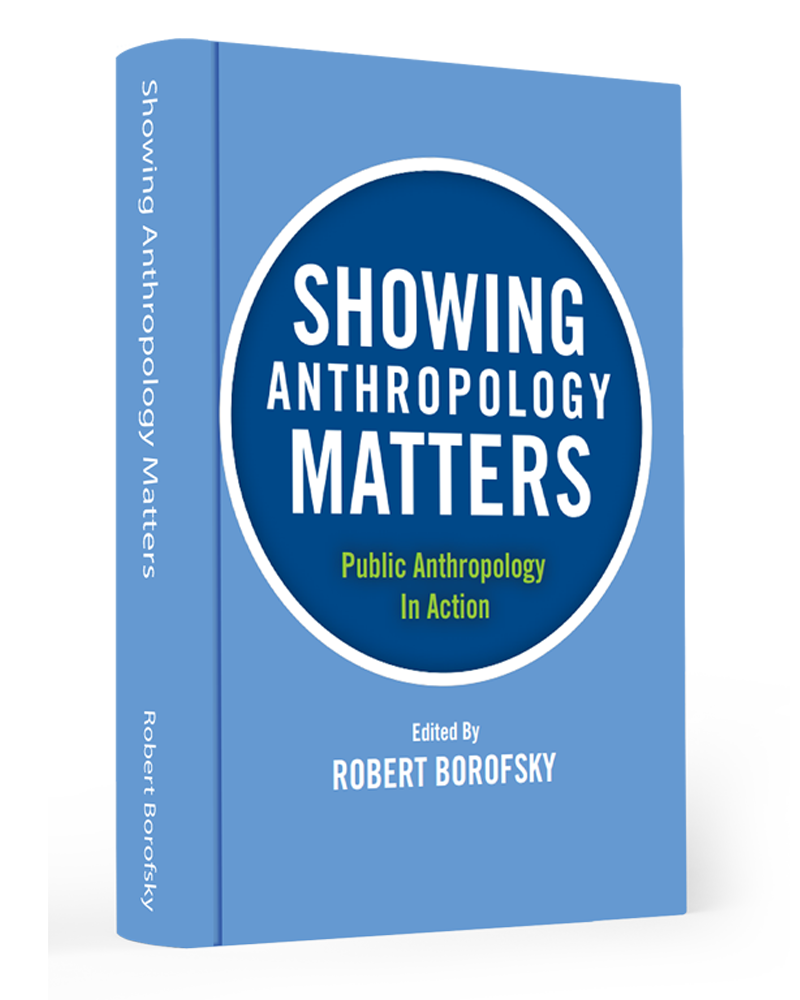
By Robert Borofsky
An Anthropology of Anthropology uses anthropological methods and insights to study the practice of anthropology as an academic discipline. It considers the contexts that shape the discipline, especially its beliefs, its publications, and the degree to which what it produces is of value to others. The book calls for a paradigm shift away from the publication treadmill—of assessing intellectual competence by how many books are produced in what period of time—toward a more profile-raising paradigm that focuses on addressing a broad array of social concerns in meaningful ways. Drawing on an anthropological dictum relating to exogamy—to marry out or die out—the book suggests anthropology needs to engage more effectively with problems of the broader world. The alternative is to turn in on itself, diminishing its public importance and funding.
ENDORSED BY 35 PROMINENT ANTHROPOLOGISTS FROM AUSTRALIA, CANADA, FRANCE, NORWAY, UNITED KINGDOM AND UNITED STATES:
William O. Beeman (Co-President, Association for the Anthropology of Policy), Philippe Bourgois (Director, Center for Social Medicine and Humanities, UCLA), Nina Brown (Professor, Community College of Baltimore County-Essex); Michael Carrithers (Professor, Durham), Jean Comaroff (Alfred North Whitehead Professor, Harvard), Veena Das (Krieger-Eisenhower Professor, Johns Hopkins), Jason De León (Arthur F. Thurnau Professor, Michigan), Simone Dennis (Head of School, Australian National), Marc Edelman (President, American Ethnological Society), Harri Englund (Professor, Cambridge), Thomas Hylland Eriksen (Professor, Oslo), Paul Farmer (Kolokotrones University Professor, Harvard), Didier Fassin (Professor, Institute for Advanced Study), Michael M.J. Fischer (Andrew W. Mellon Professor, MIT), Jonathan Friedman (Directeur D’études, École des Hautes Études en Sciences Sociales, Paris), Maurice Godelier (Directeur, École des Hautes Études en Sciences Sociales, Paris), David Graeber (Professor, London School of Economics), Seth Holmes (Martin Sisters Endowed Chair, U.C. Berkeley), Michael Lambek (Canada Research Chair, Toronto), Edward Liebow (Executive Director, American Anthropological Association), Margaret Lock (Marjorie Bronfman Professor, McGill), Tanya Marie Luhrmann (Howard H. and Jessie T. Watkins University Professor, Stanford), George E. Marcus (Chancellor’s Professor, UC Irvine), Tad McIlwraith (Associate Professor, Guelph), Yolonda Moses (Associate Vice Chancellor, U.C. Riverside), Laura Nader (Professor, U.C. Berkeley), Ronald Niezen (Katharine A. Pearson Chair in Civil Society and Public Policy, McGill), Andrew Orta, (Professor, Illinois), Anand Pandian (Associate Professor, Johns Hopkins), James Peacock (Kenan Professor, North Carolina), David Price (Professor, Saint Martin’s), Nancy Scheper-Hughes (Chancellor’s Professor, U.C. Berkeley), Cris Shore (Professor, Goldsmiths, London), Richard A. Shweder (Harold Higgins Swift Distinguished Service Professor, Chicago), and Orin Starn (Professor, Duke University)

SHOWING ANTHROPOLOGY MATTERS:
PUBLIC ANTHROPOLOGY IN ACTION
Edited by Robert Borofsky
At the heart of this book lies a question: Are readers able to find innovative solutions to one of the key problems, some might say the key problem, facing anthropology today? After discussing the current state of anthropology, the book offers readers a challenge: It presents both students—at the undergraduate and graduate levels—and faculty with the data needed for rethinking how to present the excitement and insights of anthropological research to the broader public that financially supports the discipline’s research. Readers compare what anthropologists write about their research with how the world’s media perceive and misperceive this research in reporting on it. With these data, readers can puzzle over what is the best way to raise anthropology’s intellectual profile with the broader public while, at the same time, maintaining the discipline’s professionalism and quality. The goal, in a sense, is to have our cake (raise anthropology’s public profile) and eat it (present the material in a professional manner). Impossible? Not really, if readers are open to thinking outside the box of traditional frameworks.
There are clear advantages to being highlighted in the world’s media. Showing that one’s work draws public recognition often enhances the credibility of a funding request. In a time of “audit culture,” where anthropologists are judged by the number of publications produced, having publications that advanced a department’s and university’s public recognition cannot help but be valued. They provide a clear sense that others, beyond the discipline, beyond the academy, recognize the value of an anthropologist’s work.